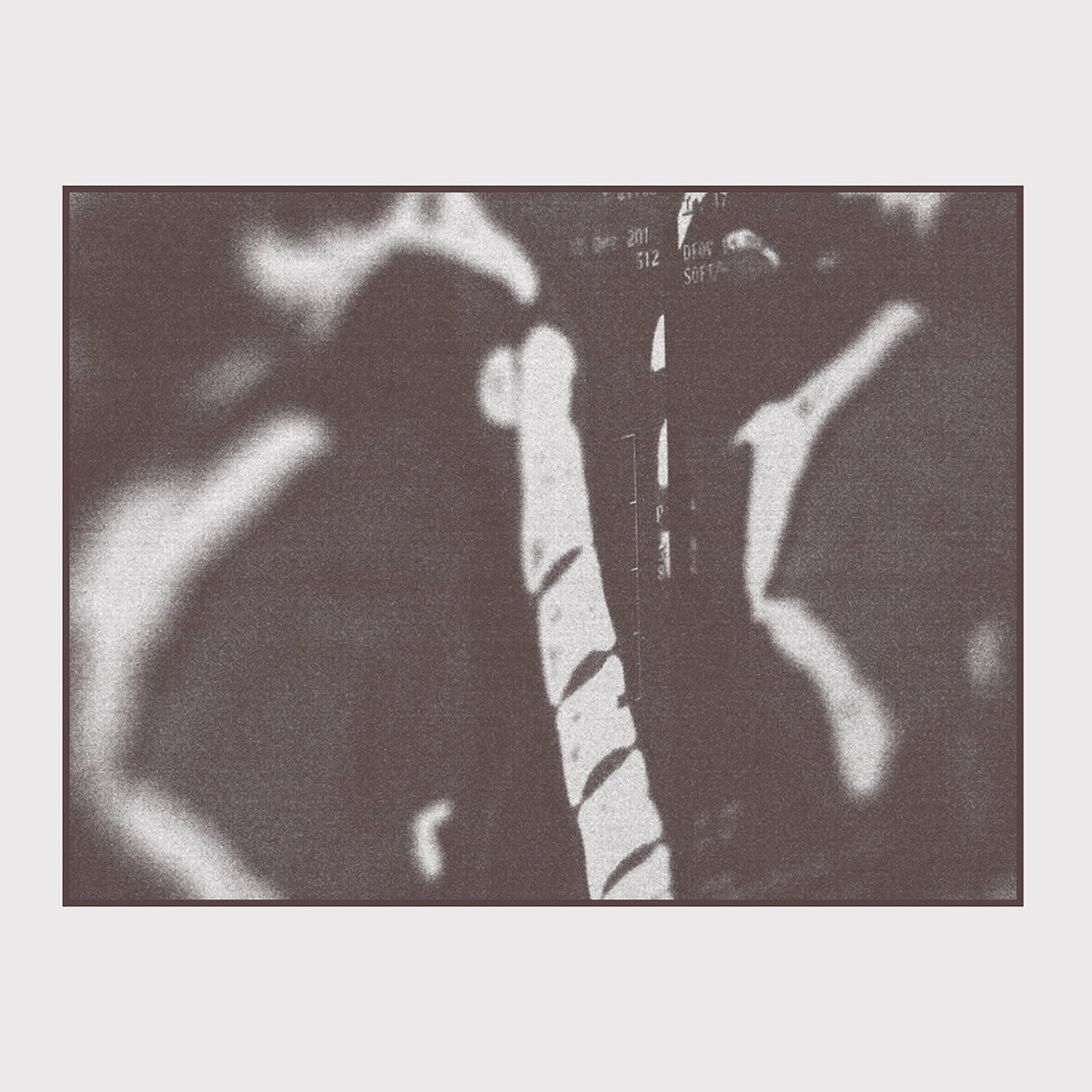Norman Westberg, "MRI"
 As much as I love Swans, one of 2015's great mysteries for me was trying to figure out why some people liked Norman Westberg’s solo 13 album so much, as it just seemed like a very straightforward ambient-drone album in every way.  Consequently, I did not have especially high expectations for Room40’s second Westberg reissue, which compiles three even earlier pieces from his homemade, self-released CDrs.  As it turns out, however, MRI is a hell of a lot more compelling than its predecessor.  While the general aesthetic is basically the same (hazy processed-guitar soundscapes), MRI features considerably more in the way of subtle dynamic shifts and disquieting dissonances.  Aside from just being deeper, more complex, and more nuanced than what I had previously heard, this album is actually quite distinctive and unique as well.  I now completely understand why Lawrence English was so keen to unearth Westberg's largely unheard solo oeuvre.
As much as I love Swans, one of 2015's great mysteries for me was trying to figure out why some people liked Norman Westberg’s solo 13 album so much, as it just seemed like a very straightforward ambient-drone album in every way.  Consequently, I did not have especially high expectations for Room40’s second Westberg reissue, which compiles three even earlier pieces from his homemade, self-released CDrs.  As it turns out, however, MRI is a hell of a lot more compelling than its predecessor.  While the general aesthetic is basically the same (hazy processed-guitar soundscapes), MRI features considerably more in the way of subtle dynamic shifts and disquieting dissonances.  Aside from just being deeper, more complex, and more nuanced than what I had previously heard, this album is actually quite distinctive and unique as well.  I now completely understand why Lawrence English was so keen to unearth Westberg's largely unheard solo oeuvre.
The prosaically titled MRI ostensibly takes its inspiration from magnetic resonance imaging, which Westberg underwent when he discovered that he was experiencing uneven hearing loss.  However, the degree to which that experience shaped this album is quite hard to unravel, as the provenance of these recordings is a bit confounding.  Of the three pieces included here, one ("Lost Mine") is a new piece dating from 2015 and another ("410 Stairs") was the title track of its own self-contained 2012 release.  Also, the original "MRI" apparently surfaced in 2012 as well, but it is something of a phantom: it only appears in Discogs as part of a compilation pulling together Westberg's MRI, 410 Stairs, and Plough EPs.  Moreover, "MRI" is not particularly obvious in its nods to medical scanning technology, seemingly borrowing only the subtle cycling/pulsing sounds and perhaps evoking a bit of immersive unreality of being cozily inserted into the heart of a machine. Westberg thankfully did not derive any inspiration from the annoying buzzing sounds common to MRIs.
While Westberg used SoundForge to originally edit these newly remastered pieces, the originally recordings were done with a very stripped-down set-up that usually consisted of a just a guitar, some delay effects, and a couple of amps recorded to tape.  Also, "MRI" was essentially recorded "live" in one take.  Nothing on MRI sounds improvised or sketchlike though, as the overall effect is one of elegantly simple variations on a theme.  The theme itself is quite simple as well, as Westberg essentially just creates a warmly droning bed of guitar haze and tape hiss, then embellishes it with quavering rhythmic waves and shivering dissonances.  Working with such a limited palette proves to be very effective here, as each minor shift in pulse or harmony is able to make maximum impact because there is no clutter to hide behind and no melodies to grab the focus: just a beautiful, gently throbbing drift that gradually changes moods as the smallest changes engineer new oscillations and complex, unexpected harmonies.  On the opening title piece, the drones gradually become more shadowy and ominous, culminating in the brief eruption of an undercurrent that sounds legitimately gnarled.  The longer and more beautiful "410 Stairs" is not nearly as haunted-sounding, however, instead maintaining a consistent mood of bittersweet warmth that gradually builds in power with layers of jangling, bell-like waves.  The closing "Lost Mine" initially starts in a somewhat similar mood, but heads in a very different direction, as blurry, treble-heavy layers bleed into one another and drift in and out of sync to create a gently psychedelic blur.
Interestingly, Room40's Lawrence English describes Westberg's work as "embedded strongly in the American Minimalism tradition."  I am not sure who he specifically had in mind, but these pieces certainly do betray an affinity for patterns and repetition.  In any case, something transcendent is certainly happening: the tools and textures employed on MRI share a lot of common ground with what other experimental guitarists were doing around the same time, yet the best moments show that Westberg was operating on a much higher plane compositionally than his peers.  To my ears, MRI positions Westberg as a kind of a DIY/low-tech Eliane Radigue, attempting to distill drone down to its purest, most minimal form: a single sustained tone that comes alive as a number of small, controlled changes cumulatively create their own shifting pulse and harmonic arc.  On the gorgeous "410 Stairs" and some sections of "MRI," Westberg comes as close to reaching that state of drone nirvana as anyone.
 



